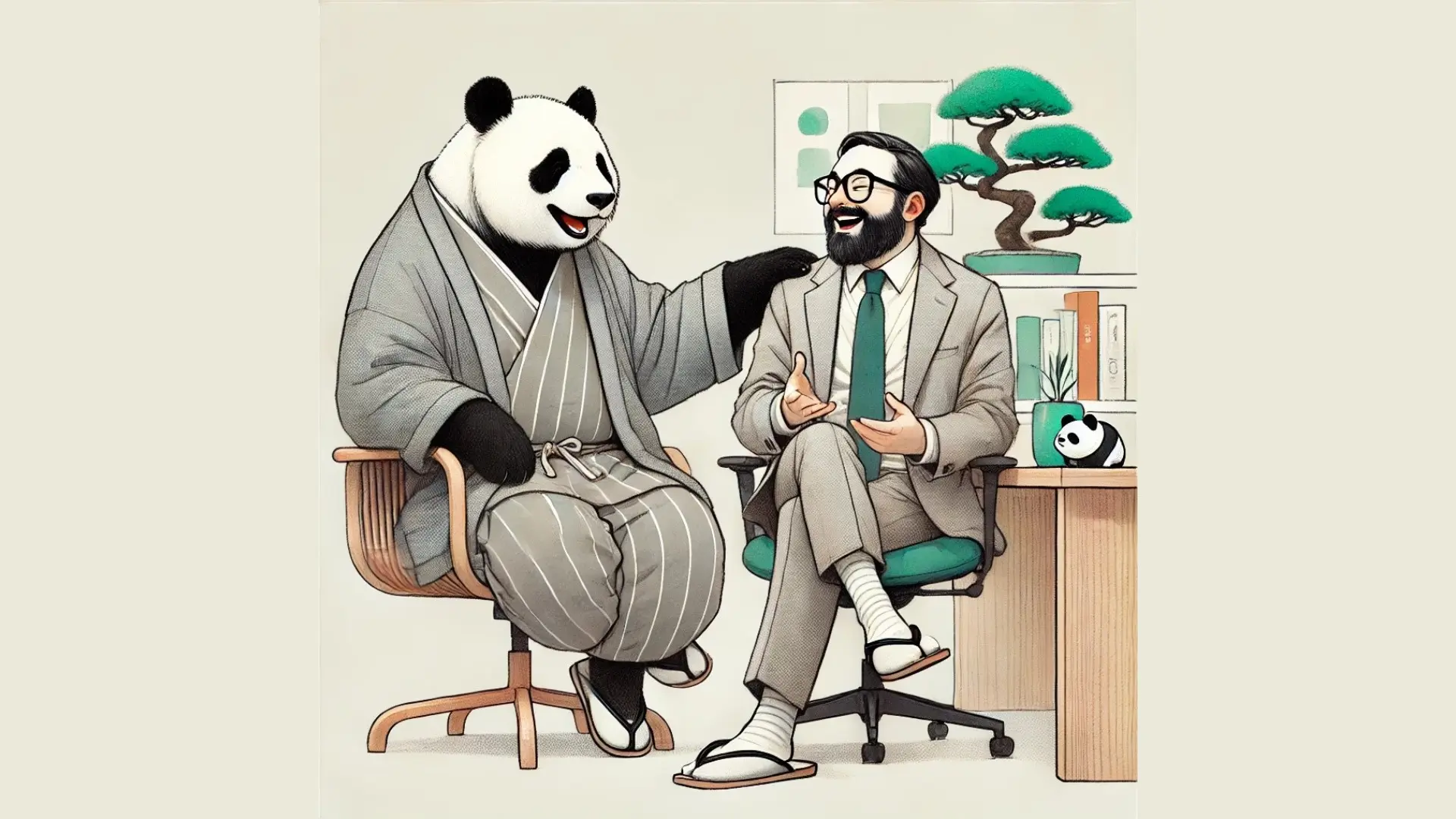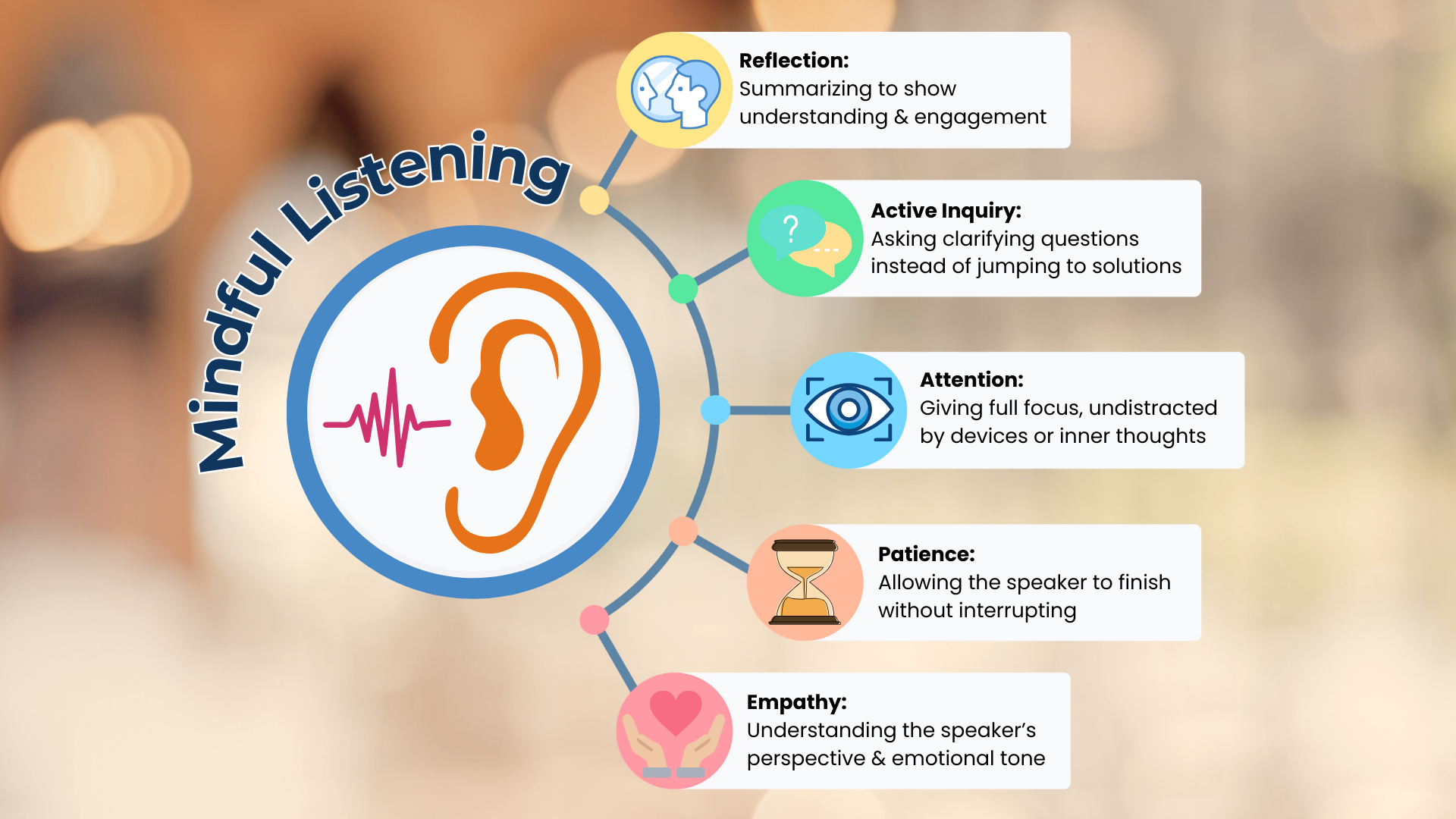Mindfulness at Work – Listening

Listening is one of the most transformative skills in the workplace. True listening is a multifaceted skill, and one life-changing aspect I learned from Ben Koh Master Certified Coach (MCC) is the importance of listening for words and tone, emotion, and even the order in which ideas are presented. Often, the last word in a sentence carries the most weight, revealing an underlying message we might otherwise miss. This nuanced approach has become essential in my daily consulting work, helping me hear the deeper meaning behind the words.
This approach also has a bonus: if your mind wanders, refocusing on the final words helps you tune back in without missing a beat. As a consultant and trainer, I’ve seen how deep listening shifts conversations and lays the foundation for stronger, more productive relationships. In this article, I’ll show you how I incorporate this skill in practice, turning conversations into impactful exchanges that foster genuine understanding.
A business story
When we think we’re listening, we’re often more focused on our agenda — thinking about what we’ll say next or wondering if our point is being heard. This preoccupation can prevent us from truly understanding the speaker’s message, creating a barrier to authentic connection.
Here’s a real-world example from my consulting work that highlights the impact of this life-changing listening approach.
Real-World Example:
A client expressed frustration about communication issues within his team:
“We need a better communication framework. Information isn’t shared on time, misunderstandings are common, and honestly, I think there’s just a lack of trust.”
He emphasized “trust” with a strong, frustrated tone, making it the last word in his statement. Recognizing its importance, I asked:
“I noticed you mentioned trust with some frustration. Could you tell me more about how trust plays a role in your team’s communication?”
This opened up a valuable conversation.
“It’s not just about sharing information — it’s about openness and honesty. Without trust, they can’t communicate openly under pressure.”
This insight reshaped our approach. Rather than simply building a communication framework, we made “trust” a core value in the team’s vision. What started as a basic communication framework evolved into a comprehensive vision with deep roots, enhancing team dynamics and providing a meaningful foundation. The entire approach to knowledge transfer shifted 180 degrees: Instead of generally restricting data, the new standard became to share everything except confidential information — of course only within the company.
This is real trust and open communication.
I apply this life-changing skill daily to turn surface-level issues into opportunities for deeper change.
Five Core Competencies of Mindful Listening
Mindful listening is multifaceted, and the above approach is just one piece. Here are five key competencies I rely on regularly to ensure effective listening. Consider each to identify your strengths and areas for growth:
Five Core Competencies of Mindful Listening
Quick Reflection: Which competency is your strongest? Which one could use more attention?

Weekly Intention: Focus on Listening
As highlighted in Mindfulness at Work #1: Intention, setting a clear goal helps align our actions with our values. This week, try setting an intention to strengthen your listening skills:
- “I will be more patient and avoid interrupting.”
- “I will minimize distractions to stay fully present.”
- “I’ll ask more questions to deepen understanding before offering solutions.”
Pro Tip: Place a reminder of your intention where you can see it — on a sticky note or as a calendar alert. “Today, I intend to listen mindfully.” This keeps your goal top-of-mind and helps build new habits.
Mindful listening is a practice that requires time and consistency. Focusing on just one skill this week will improve your conversations and foster stronger, more genuine relationships.
Final Thoughts
Mindful listening goes beyond technique — it’s a bridge to deeper understanding and trust. When we tune into tone, emotion, and even the final words, we often uncover meaning that transforms simple exchanges into meaningful dialogue. By consciously listening we connect more fully, expand possibilities, and create communication rooted in shared values.
For further insights on aspects of mindful communication, I recommend the articles of Schulz von Thun Institut für Kommunikation.
Coming up next: How mindful speaking can enhance your workplace interactions, helping you communicate with clarity and impact. Stay tuned!